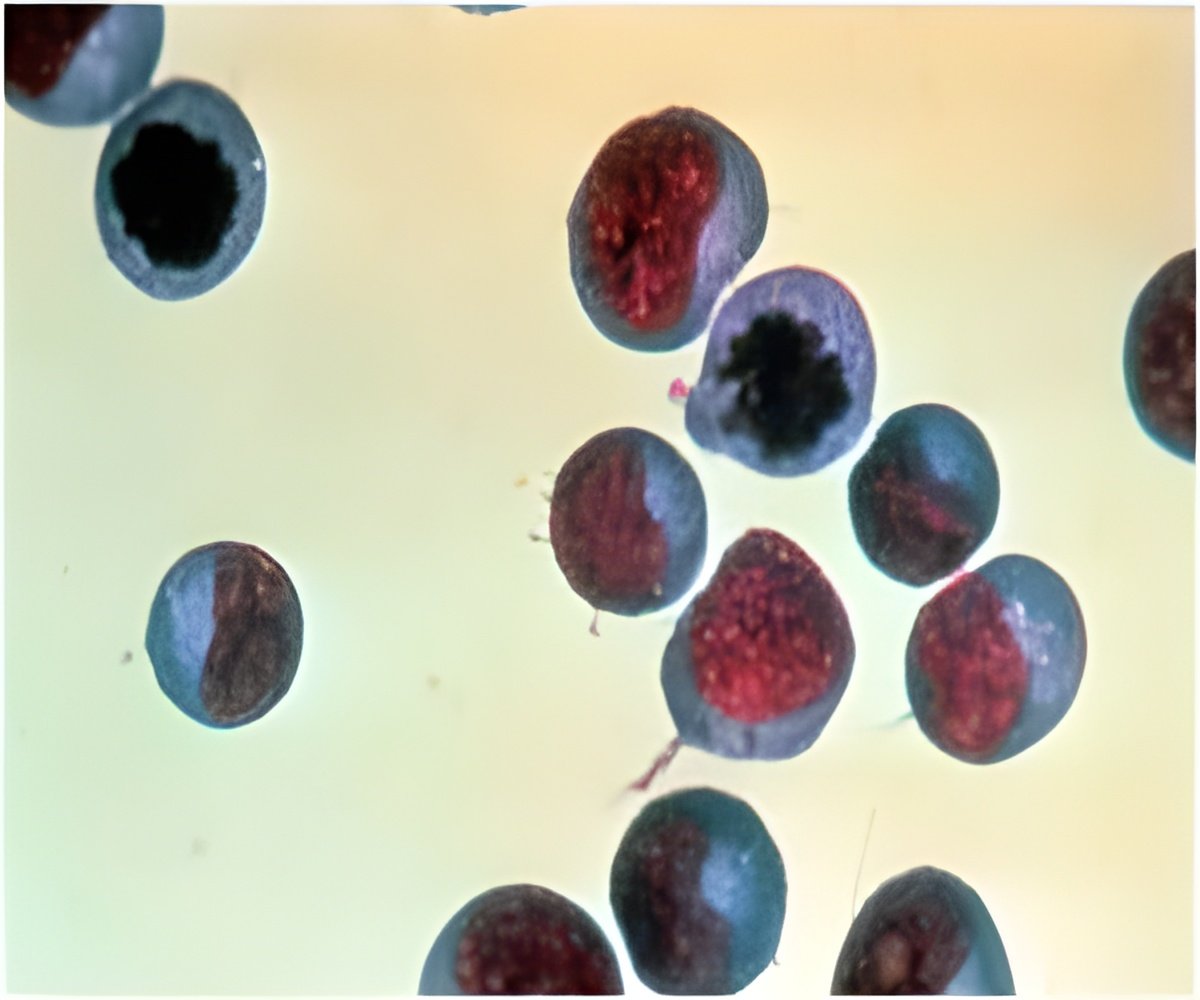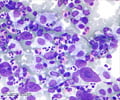A new potential therapeutic target for Diffuse Large B-Cell Lymphoma (DLBCL) has been discovered by researchers from the NYU Cancer Institute,

"We have discovered that the protein FBXO11 is a novel tumor suppressor in B-cells," said senior study author Michele Pagano, MD, the May Ellen and Gerald Jay Ritter Professor of Oncology and Professor of Pathology at NYU Langone Medical Center and a Howard Hughes Medical Institute Investigator. "Our new research findings show deletion or mutation of the FBXO11 gene in B-cells may lead to the formation of Diffuse Large B-Cell Lymphoma."
Lymphoma is a blood cancer that affects the lymphatic system, the body's infection and disease-fighting network. DLBCL is the most common type of adult lymphoma. This type of non-Hodgkin lymphoma develops within B-cells, a type of lymphocytes or white blood cells in the lymphatic tissue of the body. Mutations of certain genes in the B-cells located in the lymph nodes and other organs of the immune system contribute to the proliferation of DLBCL throughout the body.
The majority of patients with DLBCL overexpress the protein B-Cell Lymphoma 6 (BCL6). By binding to specific DNA sequences, BCL6 regulates the transcription of genes that are crucial to B-cell development and function. Deregulation of BCL6 leads to the pathogenesis of B-cell lymphomas as proven in experiments in mice expressing BCL6 in B-cells and developing DLBCL similar to human disease. In certain DLBCL patients, BCL6 overexpression is achieved through gene translocation or mutation of its promoter. However, many other patients with DLBCLs overexpress BCL6 through a mechanism that has been unknown until now.
In the study, NYU Langone researchers show FBXO11 as a novel tumor suppressor. FBXO11, part of a SKP1/CUL1/F-box protein (SCF) ubiquitin ligase protein complex, controls BCL6 degradation. FBXO11 functions to keep the levels of BCL6 in B-cells low. The new study shows that BCL6 protein is targeted for degradation by the B-cell's ubiquitin system, the cell-recycling system that helps limit unnecessary cell growth and prevent malignant cell transformation. FBXO11-mediated elimination of BCL6 prevents the development of DLBCL. Additionally, researchers discovered FBXO11 is deleted or mutated in many DLBCL cell lines and DLBCL patients. Experimentally, inactivation, mutation or deletion of FBXO11 in B-cells induces overexpression of BCL6. Moreover, reconstitution of FBXO11 expression in FBXO11-deleted DLBCL cells, by promoting BCL6 degradation, inhibits proliferation and induces the death of tumor cells.
"These findings reveal the molecular mechanism behind the overexpression of BCL6 in B-cell lymphomas," said Dr. Pagano. "Mutations and deletions of FBXO11 in B-cells contribute to lymphomagenesis. As lymphoma cells are addicted to BCL6 expression, FBXO11-mediated regulation of BCL6 is a new potential therapeutic strategy for the future treatment of lymphoma."
Advertisement
Source-Eurekalert










